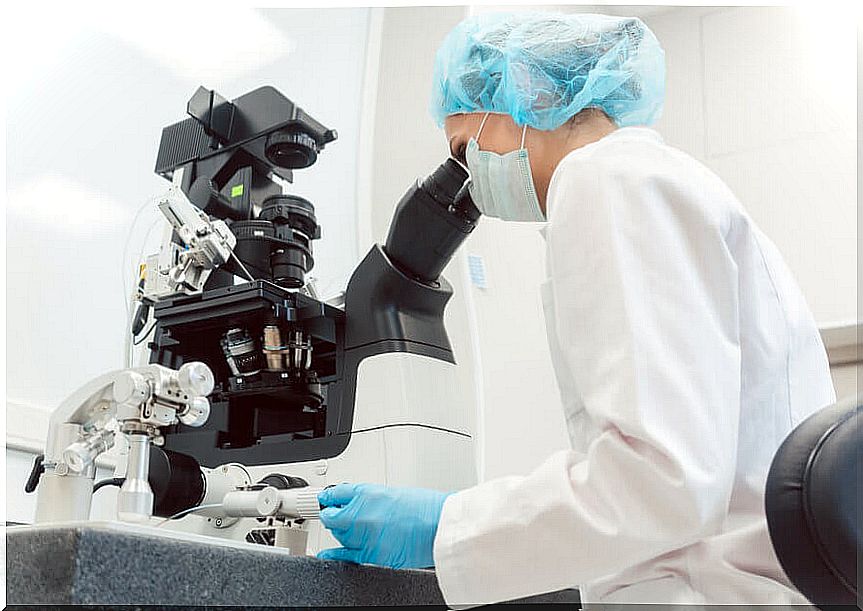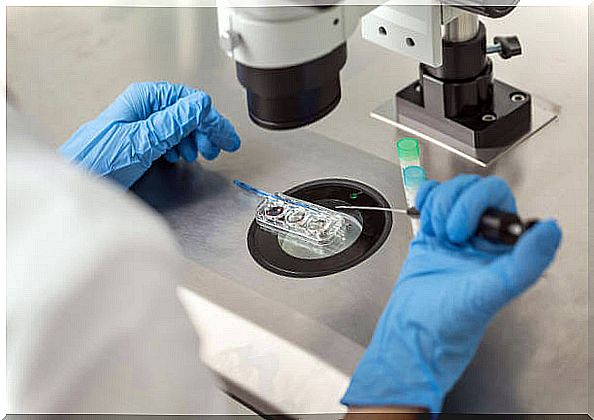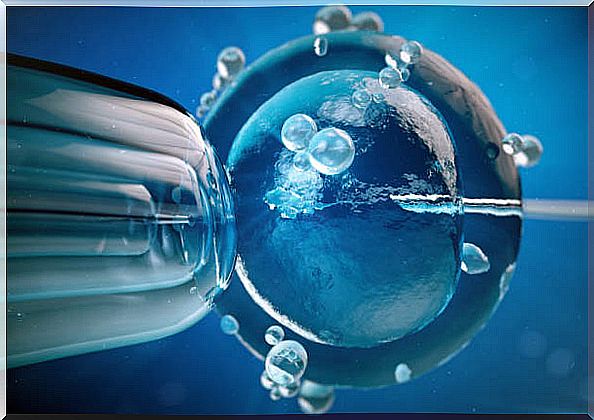Preimplantation Genetic Diagnosis
Preimplantation genetic diagnosis studies eggs and embryos, but for what purpose? Today we will discover the answer to this question.

Preimplantation genetic diagnosis (PGD) is a procedure that is carried out when assisted reproduction is performed, also known as artificial fertilization. This is something that takes place when a woman is unable to get pregnant naturally.
Throughout this article we will discover what exactly PGD refers to in a much more extensive way. Also, we will see how it benefits the pregnancy and the methods that have to be carried out so that it can be successful.
What is preimplantation genetic diagnosis?

Preimplantation genetic diagnosis, as well stated in the article Preimplantation genetic diagnosis: scope and limits , studies eggs and embryos. The reason for this is that we want to avoid implanting embryos that could favor an abortion or the birth of a baby that is not completely healthy.
This is an advantage in assisted reproduction. When a woman becomes pregnant by the natural method, she cannot choose between a healthy embryo or an unhealthy one. By performing the preimplantation genetic diagnosis, this allows preventing the baby from being born with Down syndrome or Turner syndrome, among others.
Method
Before the implantation of the ovum in the woman’s uterus, doctors carry out the preimplantation genetic diagnosis. To do this, an in vitro fertilization is carried out and the fertilized eggs are placed in a glass capsule. There they wait 3 or 5 days to analyze how they are developing.
After that time, a biopsy is performed on each of the embryos to discover genetic problems. After this, up to 3 healthy embryos are chosen and implanted in the woman’s uterus.
What happens if the woman cannot get pregnant? Should you go through this whole process again? The answer is no since, although only 3 embryos are chosen to implant, there may be many other healthy ones. In these cases, they can be frozen so that it can be tried again.
A useful technique

Although we can think that this is only carried out when a woman fails to become pregnant naturally, the truth is that it is a useful technique in those cases in which there is an inherited disease in the family.
In this way, a healthy embryo can be chosen, free of any hereditary alteration that can condition its life. Without a doubt, in these situations it is even a recommended technique. However, it continues to generate debate.
Ethics in preimplantation genetic diagnosis
As the article Preimplantation genetic diagnosis of human embryos points out. Technique, ethics and theology , there are still certain ethical objections regarding the elimination of embryos, considered human beings, in their first phase of development.
In fact, it speaks of the personal dignity of the human embryo and respect for maintaining the natural order of things. Preimplantation genetic diagnosis is considered to go against all this, since it allows choosing the healthiest embryos so that they are free of any genetic alteration.
Without a doubt, this view is completely respectable. However, if there is the possibility of fathering healthy children, why not do it? Today there are these types of methods to prevent children from being born with a disease that can allow them to live for a limited time, although it all depends on the degree of affectation with which they are born.
The option is there, above all, for those women who find it difficult to become pregnant or for those who are afraid of having children because there is a high possibility that they will inherit a disease. It is a valid alternative that you can choose or not according to our values.
If your family had a degenerative disease that is inherited, would you subject your eggs to preimplantation genetic diagnosis? What do you think about this procedure? We hope that this article has allowed you to know an option to ensure the birth of a baby full of health and free of any genetic alteration.









